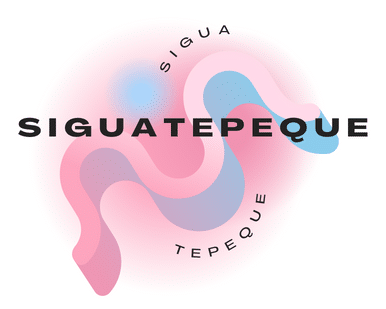How Has Digital Ledger Technology Advanced Beyond Cryptocurrency to Empower Smart Contracts?

When you hear the term "blockchain," your mind might automatically jump to Bitcoin, the pioneering cryptocurrency that has taken the financial world by storm. But blockchain technology, or more generally, digital ledger technology (DLT), has potential uses far beyond digital currencies. One of the most promising applications of this technology is in the creation and execution of smart contracts.
These smart contracts are self-executing contracts with the terms of agreement directly written into lines of code. They operate on the blockchain network and therefore offer the same benefits: decentralization, security, and trustworthiness.
Have you seen this : What awaits you inside a mystery box italy?
Blockchain and Distributed Ledger Technology
Blockchain is a type of distributed ledger technology. At its core, a blockchain is a decentralized database managed by multiple participants, known as nodes. This mechanism allows for the creation of an immutable and secure ledger of transactions.
The decentralization of this technology is integral to its security. By distributing data across a multitude of nodes, the network can guard against fraud and tampering. The system operates on consensus, with each node possessing an identical copy of the complete ledger of transactions. Changes to the ledger are only made when the majority of nodes agree to it, which helps maintain the integrity of the system.
In the same genre : What Role Does AI Play in Personalizing Online Education for Children with Autism?
The Rise of Smart Contracts
Smart contracts take the blockchain technology a step further. These digital contracts encode certain conditions and outcomes. When the conditions are met, the contract self-executes, carrying out the specified actions without the need for an intermediary.
The term "smart contract" might sound like something out of a sci-fi movie, but these digital agreements are already a reality. They’re used in various industries, from real estate to supply chain management, to automate processes and improve efficiency.
For example, a smart contract could be used to facilitate a real estate transaction. The contract could be programmed to automatically transfer ownership of a property to the buyer once the agreed-upon purchase price has been paid. This removes the need for a middleman (like a notary) and speeds up the transaction process.
Trust and Transparency in Transactions
One of the main benefits of smart contracts is the trust and transparency they offer. Because these contracts operate on the blockchain, all transactions are publicly verifiable and cannot be altered. This is a far cry from traditional contracts, which can be manipulated or breached with relative ease.
By using a smart contract, parties can ensure that the agreement will be carried out exactly as planned. There’s no need to rely on a third party or to trust the other party implicitly. Once the contract is on the blockchain, it’s out of anyone’s control. The contract will execute itself based on the encoded conditions, ensuring fairness and preventing disputes.
Security and Access Control
Smart contracts also excel in terms of security and access control. The blockchain’s decentralized nature makes it incredibly difficult for hackers to compromise the system. A hacker would have to gain control of more than half of the nodes in the network to alter the ledger – a feat that’s virtually impossible given the vastness and dispersion of these nodes.
Access control is another benefit. With a smart contract, only the parties involved in the contract can access it. This is in stark contrast to traditional contracts, which are often stored in a physical format and can be accessed by anyone with physical access to them.
Financial Industry and Beyond
While its roots are in the financial sector, blockchain’s reach has extended far beyond. It’s now being used in sectors as diverse as healthcare, logistics, and even voting systems.
In healthcare, for example, blockchain can enable secure and instantaneous access to patient records, even across different healthcare providers. In logistics, it could help track products from manufacturing to delivery, providing complete transparency and authenticity.
The implications of this technology are wide-ranging. As blockchain and smart contracts continue to evolve, they have the potential to transform industries and revolutionize the way we conduct transactions.
While it’s clear that blockchain technology and smart contracts hold enormous potential, they are not without their challenges. Regulatory issues, scalability, and the need for a clear legal framework are just a few of the hurdles. Yet, with ongoing research and development, these burgeoning technologies are set to disrupt conventional methods of conducting business and transacting value.
The Implications of Blockchain-Based Smart Contracts
Smart contracts represent a major leap forward in technological innovation and scalability. By leveraging blockchain technology to automate and secure transactions, they eliminate the need for intermediaries, enhance efficiency, and foster trust among parties. But beyond these attributes, it’s the use cases of smart contracts across various industries that truly highlight their potential.
In the realm of supply chain management, smart contracts can lend unprecedented transparency and efficiency. Consider a business transaction involving multiple parties – manufacturers, transporters, wholesalers, and retailers. In traditional setups, this entire process is fraught with paperwork, delays, and room for errors. But with smart contracts, every step of the process can be automatically recorded and verified on the blockchain. This can facilitate real-time tracking of goods, instant payments upon successful delivery, and even automated compensation for delays or damages.
Real estate is another domain where smart contracts could bring significant change. By digitizing property contracts and records, blockchain can make the process of buying or selling a property more transparent and efficient. For instance, once a buyer and seller agree to terms and the payment is made, the smart contract could automatically transfer the property ownership to the buyer, eliminating the need for third-party involvement.
The potential applications of smart contracts also extend to sectors like voting systems, healthcare, and data security. With blockchain’s ability to provide tamper-proof records, smart contracts could facilitate secure, transparent, and seamless voting processes. In healthcare, patient records could be securely stored on blockchain, allowing only authorized individuals to access them, thereby ensuring data protection.
Concluding Thoughts: The Future of Smart Contracts
The advent of blockchain technology and smart contracts represent a new era of digital innovation. As we delve deeper into the 21st century, these technologies promise to revolutionize industries and redefine traditional business practices. From finance to real estate, healthcare to logistics – the possibilities are as boundless as they are exciting.
However, like most technological advancements, smart contracts and blockchain technology also come with their fair share of challenges. Regulatory issues, data security concerns, and the need for consensus mechanisms are some of the hurdles that need to be addressed. For example, who would be held liable if a smart contract code fails? What happens if there’s a dispute between parties? These are questions that require robust legal frameworks.
On the technical side, enhancing scalability to handle large volumes of transactions and ensuring data protection are also crucial. Furthermore, as blockchain networks operate on proof of work or proof of stake mechanisms, energy consumption and environmental sustainability are also concerns that need to be taken into account.
Despite these challenges, the future of smart contracts looks promising. It’s a field that’s ripe for innovation, and as more research is conducted and solutions are found to these issues, we can expect to see blockchain and smart contracts becoming a staple in digital transactions. In the United States and beyond, businesses, governments, and individuals are already embracing these technologies. As we continue to explore and refine these applications, the potential for blockchain and smart contracts to create a more efficient, transparent, and secure digital world is truly exciting.
